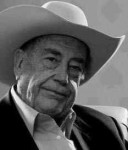
Note: Not at the old Poker1 site. A version of this entry was first published in the London Telegraph in 2005.
Historical note: The following explanatory note didn’t appear in the series, but was sent with each column as submitted.
Doyle “Texas Dolly” Brunson stands unchallenged as the most celebrated poker player who ever lived. In 2005, at age 72, he won an unprecedented 10th championship gold bracelet at the World Series of Poker. He is among the few living members of the Poker Hall of Fame, and his books are the bibles for poker professionals.. Through www.poker1.com and www.doylesroom.com, Brunson has teamed with Mike Caro, today’s premiere poker educator, to offer a free learning experience to players worldwide. This column is founded on those collaborative teachings.

Most players will participate in private games sometimes. These may be played among friends – your typical Friday night variety of poker. The purpose isn’t only poker; it’s purpose is also bonding.
Although I never play in that sort of game anymore, most readers occasionally will. And I’m going to share something that happened back before I played poker for a living that changed my perspective on how you should treat that common type of game. This is the story of Scotty and Professor Math.
Just a college student
Now Professor Math wasn’t really a professor. He was just a college student, like myself and all the others in the game. We called him that, because he was quick to calculate. He would then point out poker mistakes, aggravating the other players, even he thought he was being friendly. Oh, and P.M. was frail, really scrawny.
Then there was the other character who played a part in this unexpected poker lesson. His name was Scotty. He was double P.M.’s size, strong, and temperamental. Most of the time, he was friendly, but you tried not to get him mad.
Games like this tend to be experimental. It was dealer’s choice, meaning that after each hand the deal was passed to the next player, who could choose any form of poker he liked. At first, we just played hold ’em, but predictably, the dealers became more inventive, and there was draw poker, seven-card stud, lowball, and a couple other ingredients added. That was fine with P.M.; he was familiar with these games.
Then a dealer chose seven-card stud with deuces wild. Now wild card games are a staple of many Friday night poker game. So, everyone readily adapted, except P.M., who complained that it made it too hard to calculate odds and asked to be dealt out. A few players grumbled, but we played without him. The laughter grew along with the size of the pots, and all of the next deals were wild card games, some with both deuces and fours wild. Finally, the deal returned to Professor Math. He announced the game, “Draw poker, nothing wild.”
The glare
Scotty glared at him. The glare continued and turned stone cold and he snarled, “Deal me out.” Almost immediately, everyone else asked to be dealt out, too, so P.M., embarrassed, slammed the deck to the player on the left.
“You deal,” said P.M.
“No,” Scotty retorted, reaching across the table and returning the deck to P.M. “It’s your deal.” So, ludicrously, P.M. was intimidated into dealing five cards to just himself.
“You forgot to ante,” Scotty reminded him. So P.M. anted. And then Scotty made P.M. wager right to the end, then show his hand and take his own pot. Then, finally, the dealt was passed to the next player.
After that, P.M. played all the hands quietly. He was uncomfortable, I’m sure, but the point had been made, and he was – at least – participating.
In home games, you don’t only need poker skills –you need public relation skills, too. You can’t always have things your way. The whole purpose of that sometimes weird and inventive poker gathering is enjoyment. Everyone’s enjoyment. It’s a party in which unexpected things can happen – a poker party in which unusual forms of the game are dealt. And you’ve been invited to participate in the adventure. Ignore that simple truth and you’ll not only be unpopular, I’m betting you’ll cost yourself money. — DB
